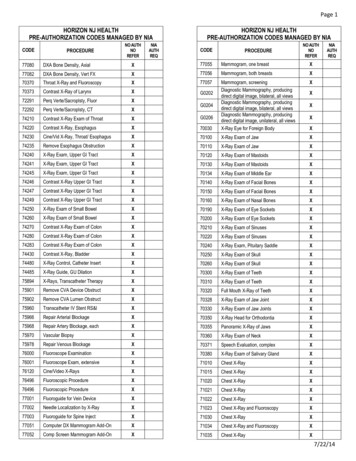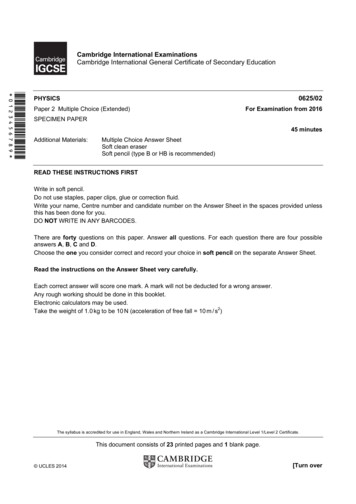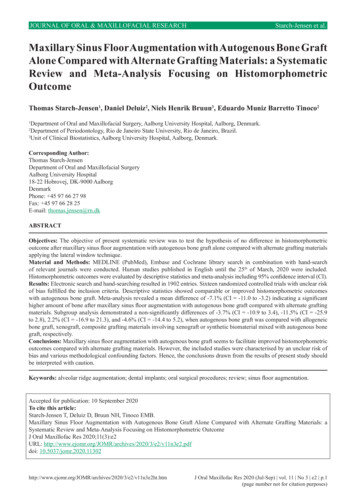
Transcription
An echo in the bone pdf full
Fantasy takes over in most parts and the romance gets secondary in the series on the critical occasions but it is never ever left out of the scene. Love and romance serve as the first base of the story and then later the whole fantasy tale stands on these two pillars. Year after year the outlander becomes more and more skilled in the use of her powersand facing tragedies have become a daily parcel for her. She was forced to lose her husband and then her daughter even in Outlander and Voyager but this does not stop her unending voyage towards infinity. Diana Gabaldon too has not lost grip over the main plot that is strong and author’s interest in the series clearly states that it is not ending thateasily. Claire and Jamie know from the previous part that the Americans will emerge in the war but that war will make them point a gun on their own son is unbearable. In the last part it was Jamie’s life that was under the radar and it is his son who can lose his life at the hands of his own father. Current chapter describes the horrors of war also andtells the fans that what happens to the new generation in such circumstances when their countries or nation pass through such a span in history. History is linked all the way with the series but it is not allowed to steal the main show. We look at history in an entirely new way or the way Claire wants it to be. Davina Porter has also been one of the maincauses of fame of this series, she provides the exact pitch and commitment from her is never lost at any stage. Note: Please scroll down to load more books!!! Audiobookss.com Audiobookss audio player An Echo in the Bone audiobook is a romance fantasy novel. The book is chapter seven of the Outlander novel series. The book and the series arewritten by Diana Gabaldon. Diana is mainly known for her Outlander novel series. However, she has written plenty of novels in the mystery thriller, science fiction, action & adventure genres. A couple of her quality novels include Seven Stones to Stand or Fall and Dragonfly in Amber. Davina Porter is at her usual best with the performance in An Echoin the Bone. She managed to get the characters of Claire and Jamie perfectly, including all the supporting characters. An Echo in the Bone audiobook free Jamie Fraser was fully aware of his time-traveling wife that America will win the Revolutionary war at any cost. Her name was Claire and she was quite optimistic about the win despite all odds andchallenge sin between. However, that fact offers very little solace. It is because Jamie realized that he could find himself directing some weapon at his very own son. His son was a young and promising officer in the British Army. Jamie is not the only one who is known for having a tormented soul. Claire might be aware that who will come outvictorious from the conflict. But, she had no idea if Jamie, her beloved would survive the threat. The stakes are quite high in this novel for Jamie and Claire. The book the entire Outlander novel series is amazing. It is recommended to start this series in the given order. This will give you a true context of what this series is all about and how thecharacters are developed in the storyline. Related TagsBy: Diana GabaldonNarrated by: Davina PorterSeries: Outlander Galaxy audio player If the audio player does not work, please report to us, we will fix it as soon as possible (scroll up a little you will find the "REPORT CONTENT" button). Audio player is currently down for maintenance (may be 2hours), please wait. or come back later. Hi guys, thank you so much for your reports about the audio player issues. We have read all of them, the audio player works fine now. Please reload the website and play audio again. Download and continue play audio on the Mobile App App Name: Short Stories And Audios Where does An Echo in the Bonerank among all the audiobooks you’ve listened to so far? This book ranks about the highest I've douwnloaded. Not just the story - but the narrator makes it SUCH a joy to listen to! Who was your favorite character and why? Claire and Jamie are my favourite characters of course, the book is about them after all. But next comes Brianne (yikes, theAmerican accent isn't great but you CAN differentiate and it isn't dire) and Roger is fantastic - but the children are just so cute when she does their voices! You can tell each and every different character with out fail - and tell whether they are good or bad. Which character – as performed by Davina Porter – was your favourite? Davina Porter is thevery best narrator of any book I have listened to. I have listened to many, many books from Steven King to Alan Carr and I could listen to her all night! Her reading is appropriate, passionate, temperate and even - and the accents she does are so good! Any additional comments? I have read the hardback books by Diana Gabaldon - but Davina portermade them come alive for me. And the ultimate praise - my partner also loves listening to the books! He is just not a romantic fiction man lol - but she makes it in to an epic tale. Brilliant. His father-in-law had hidden there briefly, during the days after the Rising, before being imprisoned at Ardsmuir. Roger had gone down there once—also briefly—when they had bought the house, and had come up out of the dank, fetid little space with a complete understanding of why Jamie Fraser had chosen to live in a wilderness on a remote mountaintop, where there was no constraint in any direction. Years of hiding, of duress, of imprisonment Jamie Fraser was not a political creature, and he knewbetter than most what the true cost of war was, whatever its presumed purpose. But Roger had seen his father-in-law now and then rub absently at his wrists, where the marks of fetters had long since faded—but the memory of their weight had not. Roger had not the slightest doubt that Jamie Fraser would live free, or die. And wished for an instant,with a longing that gnawed his bones, that he might be there, to fight by his father-in-law’s side. The rain had started; he could hear the patter of it on the slate roofs of the outbuildings, then the rush as it came on in earnest, wrapping the house in mist and water. “For ourselves and our posterity,” he said aloud, but quietly. It was a bargain madebetween men—unspoken, but understood completely. Nothing mattered but that the family be preserved, the children protected. And whether the cost of it was paid in blood, sweat, or soul—it would be paid. “Oidche mhath,” he said, with a brief nod in the direction of the priest’s hole. Good night, then. He stood a moment longer in the old kitchen,though, feeling the embrace of the house, its solid protection against the storm. The kitchen had always been the heart of the house, he thought, and found the warmth of the cooker as much a comfort as the fire on the now-empty hearth had once been. He met Brianna at the foot of the stairs; she’d changed for bed—as opposed to sleep. The air in thehouse was always cool, and the temperature had dropped several degrees with the onset of rain. She wasn’t wearing her woolies, though; rather, a thin nightgown of white cotton, deceptively innocent-looking, with a small red ribbon threaded through it. The white cloth clung to the shape of her br**sts like cloud to a mountain peak. He said as much,and she laughed—but made no objection when he cupped his hands around them, her ni**les against his palms round as beach pebbles through the thin cloth. “Upstairs?” she whispered, and leaning in, ran the tip of her tongue along his lower lip. “No,” he said, and kissed her solidly, quelling the tickle of the touch. “In the kitchen. We haven’t done itthere, yet.” He had her, bent over the ancient counter with its mysterious stains, the sound of her small grunts a punctuation to the rush of wind and rain on the ancient shutters. Felt her shiver and liquefy and let go, too, his knees trembling with it, so he fell slowly forward, clutched her by the shoulders, his face pressed into the shampoo-fragrantwaves of her hair, the old granite smooth and cool beneath his cheek. His heart was beating slow and hard, steady as a bass drum. He was naked, and a cold draft from somewhere raised gooseflesh down his back and legs. Brianna felt him shiver and turned her face to his. “Cold?” she whispered. She wasn’t; she glowed like a live coal, and he wantednothing more than to slide into bed beside her and ride out the storm in snug warmth. “I’m fine.” He bent and scooped up the clothes he had thrown on the floor. “Let’s go to bed.” The rain was louder upstairs. “Oh, the animals went in two by two,” Bree sang softly, as they climbed the stairs, “the elephants and the kangaroos ” Roger smiled. Youcould imagine the house an ark, floating on a roaring world of water—but all snug within. Two by two—two parents, two kids maybe more, someday. There was plenty of room, after all. With the lamp put out and the beating of rain on the shutters, Roger lingered on the edge of sleep, reluctant to surrender the pleasure of the moment. “We won’task him, will we?” Bree whispered. Her voice was drowsy, her soft weight warm all down the side of his body. “Jem?” “Oh? No. Of course not. No need.” He felt the prick of curiosity—who was the Spaniard? And the notion of buried treasure was always a lure—but they didn’t need it; they had enough money for the present. Always assuming the goldwas still wherever Jamie had put it, which was a long shot in itself. Nor had he forgotten the last injunction of Jamie’s postscript. Have it blessed by a priest; there is blood upon it. The words melted as he thought them, and what he saw on the inside of his eyelids was not gold ingots but the old granite counter in the kitchen, dark stains sunk so farinto the stone as to have become part of it, ineradicable by the most vigorous scrubbing, let alone an invocation. But it didn’t matter. The Spaniard, whoever he was, could keep his gold. The family was safe. PART TWO Blood, Sweat, and Pickles LONG ISLAND ON JULY 4, 1776, the Declaration of Independence was signed in Philadelphia. ON JULY24, Lieutenant General Sir William Howe arrived on Staten Island, where he set up field headquarters at the Rose and Crown Tavern in New Dorp. ON AUGUST 13, Lieutenant General George Washington arrived in New York to reinforce the fortifications of the city, which the Americans held. ON AUGUST 21, William Ransom, Lieutenant LordEllesmere, arrived at the Rose and Crown in New Dorp, reporting—somewhat late—for duty as the newest and most junior member of General Howe’s staff. ON AUGUST 22 LIEUTENANT EDWARD MARKHAM, Marquis of Clarewell, peered searchingly into William’s face, offering him an unappetizingly close view of a juicy pimple—just ready toburst—on the former’s forehead. “You all right, Ellesmere?” “Fine.” William managed the word between clenched teeth. “Only, you look rather green.” Clarewell, looking concerned, reached into his pocket. “Want a suck of my pickle?” William just about made it to the rail in time. There was a certain amount of jocularity going on behind himregarding Clarewell’s pickle, who might suck it, and how much its owner would be obliged to pay for said service. This, interspersed with Clarewell’s protestations that his aged grandmother swore by a sour pickle for the prevention of seasickness, and plainly it worked, for look at him, solid as a rock William blinked watering eyes and fixed hisvision on the approaching shore. The water wasn’t particularly rough, though the weather was brewing, no doubt about it. It didn’t matter, though; even the gentlest of up-and-down motions on water, the briefest of journeys, and his stomach promptly tried to turn itself inside out. Every damned time! It was still trying, but as there was nothing left init, he could pretend it wasn’t. He wiped his mouth, feeling clammy despite the heat of the day, and straightened his shoulders. They would drop anchor any minute; time he was going below and badgering the companies under his command into some kind of order before they went into the boats. He risked a brief glance over the rail, and saw theRiver and the Phoenix just astern. The Phoenix was Admiral Howe’s flagship, and his brother the general was aboard. Would they have to wait, bobbing like corks on the increasingly choppy waves, until General Howe and Captain Pickering, his aide-de-camp, got ashore? God, he hoped not. In the event, the men were allowed to disembark at once.“With ALL POSSIBLE SPEED, gennelmun!” Sergeant Cutter informed them at the top of his voice. “We’re going to catch the rebel whoresons on the ’op, so we are! And WOE BETIDE any man what I see lollygaggin’! YOU, there !” He strode off, forceful as a plug of black tobacco, to apply the spurs to a delinquent second lieutenant, leaving Williamfeeling somewhat better. Surely nothing truly terrible could happen in a world containing Sergeant Cutter. He followed his men down the ladder and into the boats, forgetting his stomach entirely in the rush of excitement. His first real battle was waiting to be fought, somewhere on the plains of Long Island. EIGHTY-EIGHT FRIGATES. That’s whathe’d heard Admiral Howe had brought, and he didn’t doubt it. A forest of sails filled Gravesend Bay, and the water was choked with small boats, ferrying troops ashore. William was half choked himself, with anticipation. He could feel it gathering among the men, as the corporals collected their companies from the boats and marched off in good order,making room for the next wave of arrivals. The officers’ horses were being swum ashore, rather than rowed, the distance not being great. William ducked aside as one big bay surged up out of the surf nearby and shook himself in a shower of salt spray that drenched everyone within ten feet. The stable-lad clinging to his bridle looked like a drownedrat, but shook himself off likewise and grinned at William, his face blanched with cold but vivid with excitement. William had a horse, too—somewhere. Captain Griswold, a senior member of Howe’s staff, was lending him a mount, there having been no time to organize anything else. He supposed whoever was minding the horse would find him, thoughhe didn’t see how. Organized confusion reigned. The shore here was a tidal flat, and coveys of red coats swarmed amongst the sea wrack like flocks of shorebirds, the bellowing of sergeants a counterpoint to the shrieking of gulls overhead. With some difficulty, as he’d been introduced to the corporals only that morning and did not have their facesfirmly fixed in memory yet, William located his four companies and marched them up the shore into sand dunes thick with some sort of wiry grass. It was a hot day, sweltering in heavy uniform and full equipment, and he let the men take their ease, drink water or beer from their canteens, eat a bit of cheese and biscuit. They’d be on the move soon.Where? That was the question preying on his mind at the moment. A hasty staff meeting the night before—his first—had reiterated the basics of the invasion plan. From Gravesend Bay, half the army would march inland, turning north toward the Brooklyn Heights, where the rebel forces were thought to be entrenched. The remainder of the troopswould spread outward along the shore to Montauk, forming a line of defense that could move inward across Long Island, forcing the rebels back into a net, if necessary. William wanted, with an intensity that knotted his spine, to be in the vanguard, attacking. Realistically, he knew it wasn’t likely. He was completely unfamiliar with his troops, and notimpressed with their looks. No sensible commander would put such companies in the front line—unless to serve as cannon fodder. That thought gave him pause for a moment, but only a moment. Howe wasn’t a waster of men; he was known to be cautious, sometimes to a fault. His father had told him that. Lord John hadn’t mentioned that thatconsideration was the major reason for his consent to William’s joining Howe’s staff, but William knew it anyway. He didn’t care; he’d calculated that his chances of seeing significant action were still a great deal better with Howe than fiddling about in the North Carolina swamps with Sir Peter Packer. And after all he turned slowly, side to side.The sea was a mass of British ships, the land before him crawling with soldiers. He would never have admitted aloud to being impressed by the sight—but his stock was tight across his throat. He realized he was holding his breath and consciously let it go. Page 2 The artillery was coming ashore, floating perilously on flat-bottomed barges, manned byswearing soldiers. The limbers, the caissons, and the draft horses and oxen needed to drag them were splashing up the beach in a thrashing, sand-spattered herd, neighing and lowing in protest, having come ashore farther south. It was the biggest army he had ever seen. “Sir, sir!” He looked down to see a short private soldier, perhaps no older thanWilliam himself, plump-cheeked and anxious. “Yes?” “Your spontoon, sir. And your horse has come,” the private added, gesturing at the rangy light bay gelding whose reins he held. “Captain Griswold’s compliments, sir.” William took the spontoon, seven feet long, its burnished steel head gleaming dully even under the clouded sky, and felt the weightof it thrill through his arm. “Thank you. And you are ?” “Oh. Perkins, sir.” The private hastily knuckled his brow in salute. “Third company, sir; the Hackers, they call us.” “Do they? Well, we will hope to give you plenty of opportunity to justify your name.” Perkins looked blank. “Thank you, Perkins,” William said, gesturing the private off. He took thebridle of the horse, joy rising in his heart. It was the biggest army he’d ever seen. And he was part of it. HE WAS LUCKIER THAN he’d thought he might be, if not as lucky as he’d hoped. His companies were to be in the second wave, following up the vanguard of foot, guarding the artillery. Not a guarantee of action, but a good chance nonetheless, ifthe Americans were half the fighters they were reputed to be. It was past noon before he lifted his spontoon into the air and shouted, “Forward, march!” The brewing weather had broken in a spattering rain, a welcome relief from the heat. Beyond the shore, a fringe of woods gave way to a broad and beautiful plain. Waving grasses lay before them,flecked with wildflowers, the colors rich in the dim, rainy light. Far ahead, he could see flights of birds—doves? quail? too far to see—rising into the air despite the rain, as the marching soldiers drove them from their cover. His own companies marched close to the center of the advancing line, snaking in orderly columns behind him, and he directed agrateful thought toward General Howe. As a junior staff officer, he should by rights have been delegated to messenger duty, scampering to and fro among the companies on the field, relaying orders from Howe’s headquarters, carrying information to and from the two other generals, Sir Henry Clinton and Lord Cornwallis. Given his late arrival,though, he knew none of the other officers or the army’s disposition; he was completely ignorant of who was whom, let alone where they should be at any moment. He would be useless as a messenger. General Howe, somehow finding a moment in the bustle of the oncoming invasion, had not only welcomed him with great courtesy but had offered himthe choice: accompany Captain Griswold, serving in such manner as the captain might direct—or take command of a few companies orphaned of their own lieutenant, who had fallen ill of the ague. He had jumped at the chance, and now sat proud in his saddle, his spontoon resting in its loop, leading men to war. He shifted a little, enjoying the feel ofthe new red wool coat on his shoulders, the orderly club of the queued pigtail on his neck, the stiff leather stock about his throat, and the small weight of his officer’s gorget, that tiny silver remnant of Roman armor. He’d not worn uniform for nearly two months and, rain-damp or not, felt its resumption to be a glorious apotheosis. A company of lighthorse traveled near them; he heard the shout of their officer and saw them draw ahead and turn toward a distant copse of wood. Had they seen something? No. A tremendous cloud of blackbirds exploded from the copse, in a chatter so great that many of the horses shied and spooked. The horse soldiers foraged about, weaving through the trees withsabers drawn, slashing at branches, but just for show. If anyone had been hiding there, they had gone, and the light horse rode back to rejoin the advance, catcalling each other. He relaxed back into his saddle, releasing his grip on the spontoon. No Americans in sight—but they wouldn’t be. He’d seen and heard enough in his intelligencing to knowthat only real Continentals were likely to fight in an organized fashion. He’d seen militia drilling in village squares, shared food with men who belonged to such militias. None of them were soldiers—seen in groups drilling, they were laughable, barely able to march in a line, let alone in step—but nearly all were skilled hunters, and he’d seen too manyof them shoot wild geese and turkey on the fly to share the common contempt of most British soldiers. No, if there were Americans nearby, the first warning of it was likely to be men falling dead. He signaled to Perkins, had him convey orders to the corporals, to keep the men alert, weapons loaded and primed. He saw one corporal’s shoulders stiffenat receipt of this message, which he plainly considered an insult—but the man did it nonetheless, and William’s sense of tension eased a bit. His thoughts returned to his recent journey, and he wondered when—and where—he might meet with Captain Richardson, to turn over the results of his intelligencing. He had committed most of his observationsto memory while on the road, writing down only what he must, and that coded in a small copy of the New Testament that his grandmother had given him. It was still in the pocket of his civilian coat, back on Staten Island. Now that he was safely returned to the bosom of the army, perhaps he ought to write up his observations, in proper reports? Hecould— Something raised him in his stirrups, just in time to catch the flash and crack of musket fire from the woods on the left. “Hold!” he shouted, seeing his men start to lower their weapons. “Wait!” It was too far, and there was another column of infantry, closer to the wood. These swung into firing order and loosed a volley into the woods; the firstrank knelt and the second fired over their heads. Return fire came from the wood; he saw one or two men fall, others stagger, but the line pulled together. Another two volleys, the sparks of returning fire, but more sporadic—from the corner of his eye, he saw movement and whirled in his saddle, to see a gang of woodsmen in hunting shirts runningfrom the far side of the copse. The company in front of him saw them, too. A shout from their sergeant, and they fixed bayonets and ran, though it was plain to William that they’d never catch the fleeing woodsmen. This sort of random skirmishing kept up all afternoon, as the army pressed on. The fallen were picked up and carried to the rear, but theywere few. One of William’s companies was fired upon at one point, and he felt godlike as he gave the order to attack and they poured into the wood like a stream of angry hornets, bayonets fixed, managing to kill one rebel, whose body they dragged out onto the plain. The corporal suggested hanging it from a tree as discouragement to the otherrebels, but William firmly declined this suggestion as not honorable and made them lay the man at the edge of the wood, where he could be found by his friends. Toward evening, orders came along the line of march, from General Clinton. They would not stop to make camp. A brief pause for cold rations, and then press on. There were murmurs ofsurprise in the ranks, but no grumbling. They’d come to fight, and the march resumed with a greater sense of urgency. It was raining sporadically, and the harassment from skirmishers faded with the sullen light. It was not cold, and despite the growing soddenness of his garments, William preferred the chill and damp to the sultry oppression of theday before. At least the rain dampened the spirits of his horse, which was a good thing; it was a nervous, skittish creature, and he had cause to doubt Captain Griswold’s goodwill in lending it to him. Worn down by the long day, though, the gelding ceased shying at windblown branches and jerking at the reins, and plodded onward with its ears fallingsideways in tired resignation. It wasn’t bad for the first several hours of the night march. After midnight, though, the strain of exertion and sleeplessness began to tell on the men. Soldiers began to stumble and slow, and a sense of the vast expanse of dark and effort between themselves and dawn settled upon them. William called Perkins up besidehim. The soft-cheeked private showed up yawning and blinking, and paced beside him, a hand on William’s stirrup leather as William explained what he wanted. “Sing?” Perkins said doubtfully. “Well, I s’pose I can sing, yes, sir. Nobbut hymns, though.” “Not quite what I had in mind,” William said. “Go and ask Sergeant Millikin, is it? The Irishman?Anything he likes, so long as it’s loud and lively.” After all, they weren’t trying to hide their presence; the Americans knew exactly where they were. “Yes, sir,” Perkins said dubiously, and let go the stirrup, fading at once into the night. William rode for some minutes, then heard Patrick Millikin’s very loud Irish voice lifted in a very bawdy song. Therewas a ripple of laughter through the men, and by the time he reached the first chorus, a few had joined in. Two more verses and they were all roaring lustily along, William included. They couldn’t keep it up for hours while marching at speed with full equipment, of course, but by the time they had exhausted their favorite songs and grown breathless,everyone was awake and optimistic once more. Just before dawn, William smelled the sea and the rank mud scent of a marsh in the rain. The men, already wet, began to splash through a number of tiny tidal inlets and creeks. A few minutes later, the boom of cannon broke the night, and marsh birds rose into the lightening sky with shrieks of alarm.OVER THE COURSE OF the next two days, William never had any idea where he was. Names such as “Jamaica Pass,” “Flatbush,” and “Gowanus Creek” occurred now and then in the dispatches and hasty messages that passed through the army, but they might as well have said “Jupiter” or “the backside of the moon” for all the meaning they had. Hedid see Continentals, at last. Hordes of them, swarming out of the marshes. The first few clashes were fierce, but William’s companies were held to the rear, supporting; only once were they close enough to fire, in order to repulse an oncoming group of Americans. Nonetheless, he was in a constant state of excitement, trying to hear and seeeverything at once, intoxicated by the smell of powder smoke, even as his flesh quivered at the report of cannon. When the firing ceased at sunset, he took a little biscuit and cheese, but without tasting it, and slept only briefly, from sheer exhaustion. In late afternoon of the second day, they found themselves some little way behind a large stonefarmhouse that the British and some Hessian troops had taken over as an artillery emplacement; the barrels of cannon protruded from the upper windows, shining wet with the constant rain. Wet powder was a problem now; the cartridges were all right, but if the powder poured into priming pans was left more than a few minutes, it began to cake andgo dead. The order to load, then, had to be delayed until the last possible moment before firing; William found himself grinding his teeth in anxiety as to when the order should be given. Page 3 On the other hand, sometimes there was no doubt at all. With hoarse shouts, a number of Americans charged out of the trees near the front of the house andmade for the doors and windows. Musket fire from the troops inside got several of them, but some made it as far as the house itself, where they began to clamber into the shattered windows. William automatically reined up and rode to the right, far enough to get a look at the rear of the house. Sure enough, a larger group was already at it, a numberof them climbing the wall by means of the ivy that covered the back of the house. “That way!” he bellowed, wheeling his horse around and waving his spontoon. “Olson, Jeffries, the back! Load and fire as soon as you’re in range!” Two of his companies ran, ripping the ends of cartridges with their teeth, but a party of green-coated Hessians was therebefore him, seizing Americans by the legs and pulling them from the ivy to club them on the ground. He reined round and dashed the other way, to see what was happening in front, and came in sight just in time to see a British artilleryman fly out of one of the open upper windows. The man landed on the ground, one leg bent under him, and layscreaming. One of William’s men, close enough, darted forward and grabbed the man’s shoulders, only to be shot by someone within the house. He crumpled and fell, his hat rolling off into the bushes. They spent the rest of that day at the stone farmhouse; four times, the Americans made forays—twice, they succeeded in overcoming the inhabitantsand briefly seizing the guns, but both times were overrun by fresh waves of British troops and evicted or killed. William never got closer than two hundred yards or so to the house itself, but once managed to interpose one of his companies between the house and a surge of desperate Americans dressed like Indians and yelling like banshees. One ofthem raised a long rifle and fired directly at him, but missed. He drew his sword,
written by Diana Gabaldon. Diana is mainly known for her Outlander novel series. However, she has written plenty of novels in the mystery thriller, science fiction, action & adventure genres. A couple of her quality novels include Seven Stones to Stand or Fall and Dragonfly in Amber. Davina Porter is at her usual best with the performance in An .











